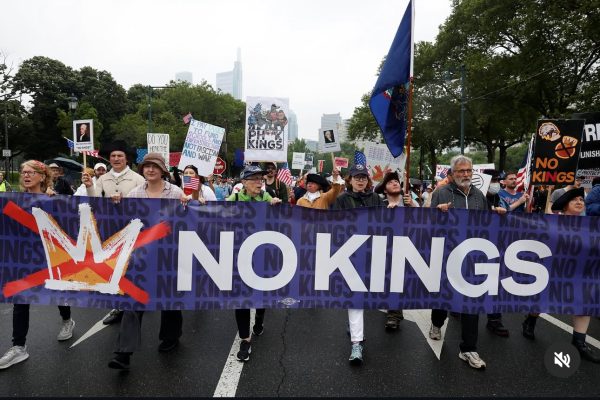Narrator:
Israelite Woman:
Neither the Pharaoh nor anyone else now in power remembers my ancestor Joseph, his father Jacob and any of his eleven brothers. Jacob’s family, who came to Egypt from Canaan to escape the famine, decided to remain in Egypt with Joseph. In the years that followed, our people have become far too numerous for the Egyptians. They see us as a threat because we immigrants refuse to assimilate. We continue to speak our own language, we preserve our values, and we cling to our belief in our invisible God.
Narrator:
Israelite Woman:
Pharaoh has decreed that the Israelite men, our husbands and fathers perform forced labor.
When my friends and I see our men suffering, we go out to comfort them. We take them food, we take them water, we bathe them, we insist on having sexual relations at the day’s end. We refuse to lose faith in the future.
Narrator:
“But the more the Israelites were oppressed, the more they increased and spread out. (Ex. 1:12). And the Egyptians feared them even more.
Israelite Woman:
Pharaoh’s fatal mistake is that he underestimates us, the Israelite women. Intuitively, we know that we are responsible for the future of our people.
Narrator:
Pharaoh resorted to more barbarous measures and decreed the murder of all newborn Israelite males. Frustrated, Pharaoh ordered the Israelite midwives, Shifra and Puah, to carry out his decree. “But the midwives feared God and did not do as the King of Egypt told them, but kept the infants alive.” (Ex. 1:17)
Israelite Woman:
Shifra and Puah inspire us all with their spirit and resistance to Pharaoh’s tyranny. Faced with the irreconcilable conflict between obedience to Egyptian law and allegiance to a higher moral law, Shifra and Puah, at great personal risk, heroically refuse to murder our babies.
Narrator:
It has been said that their eyes saw God in every mother’s face and their ears heard God in every baby’s cry. Until that moment, the world had not heard of civil disobedience in defense of a moral cause.
“Through the merits of the righteous women of that generation the Israelites were redeemed from Mitzrayim (Egypt).” Soteh 11b
Israelite Woman:
When our leader Amram, my friend Yocheved’s husband, hears Pharaoh’s decree, he separates himself from her. Many of our husbands follow his example. This infuriates Amram and Yocheved’s daughter Miriam. She confronts her father and says, “Your conduct is more damaging than Pharaoh’s mandate, for Pharaoh sentenced only the male children, whereas you have pronounced sentence against all our children.” Miriam is very persuasive; Amram returns to his wife. Our husbands return to us.
Yocheved conceives and gives birth to a son. I don’t know where she finds hr faith and courage to hide him. Somehow, little Miriam believes that her brother will grow up to be the one who will lead us to freedom.
Miriam stands by the water keeping watch over her brother’s basket until it is drawn from the water by none other than Batya, the daughter of Pharaoh. Miriam approaches Batya and arranges to have her own mother, Yocheved, be the baby’s wetnurse.
Narrator:
Pharaoh’s daughter was an instrument of God in the process of liberation. She reached out beyond station and class in willful disobedience of sovereign authority. In saving an Israelite infant, she denied the supremacy of her father, the king, and her deity.
“Then Adonai took us out of Mitzrayim (Egypt) with a mighty hand and an outstretched arm, with awesome power, with signs and with wonders.” (Deut. 26:8)
Many years later, Moses confronted Pharaoh and demanded the release of his people. The Egyptians had withstood nine plagues at the hand of the Israelite God. Yet the Israelite where still enslaved. Pharaoh continued to deny their freedom. Before the tenth plague – the worst of all – occurred. Moses assured the people that they would leave.
Israelite Woman:
As the time approaches, I am confused. I am perplexed. I am uncertain about what will be best for my family. Of course, we could remain in Egypt with the life that we know. It is brutal. It is difficult. But this is what we know. Or we can follow this leader on an unknown journey. For me there is only one decision. In my heart of hearts, I know we must go because this is the only chance that I have, that my family have, that my people have, for a future.
When I think about my foremothers – Sarah, Rebecca, Leah, Rachel – I draw the strength to make my decision. Just as they left the homes of their birth for the sake of my future, so must I go for the sake of my children and grandchildren. And so, we bake our bread, gather our belongings, and leave.
When we reach the sea, we are terrified that we will drown. But one person steps into the water; others follow. Gradually, the waters part. We begin to walk on dry ground.
What a glorious feeling. It is as if I am giving birth to myself, to my future.
Narrator:
The waters did not part in anticipation of the crossing. Rather, it took a leap of faith for the Israelites to step into the sea. It was that deliberate demonstration of faith that led to the miracle.
Israelite Woman:
It was through the merits of the righteous women of that generation, that the Israelites were redeemed from Mitzrayim.
Are we prepared tonight to step into the water? To step into the story of our lives and our people’s lives?
From: A Women’s Seder, Jewish Community Federation of Baltimore. Used with permission.











